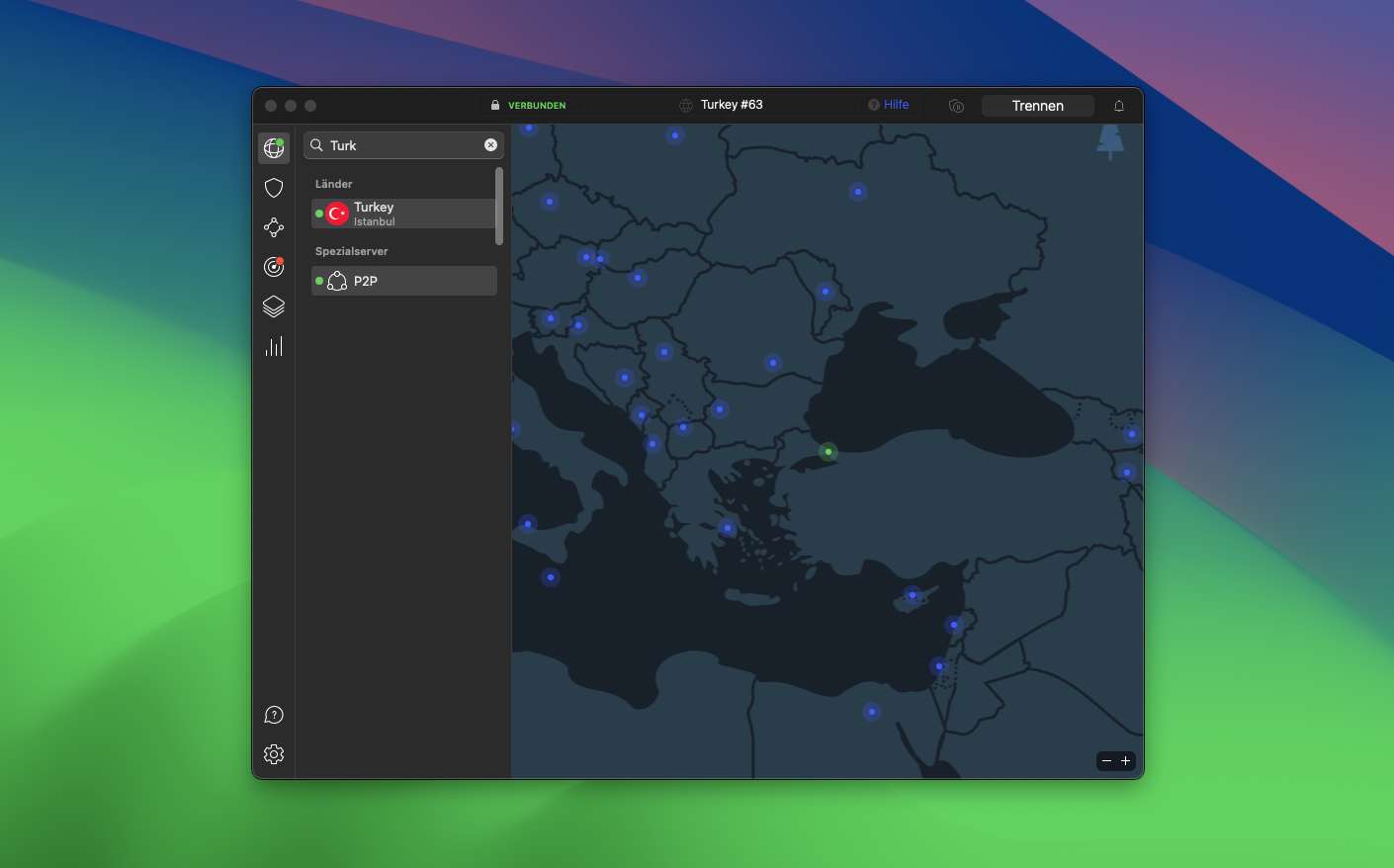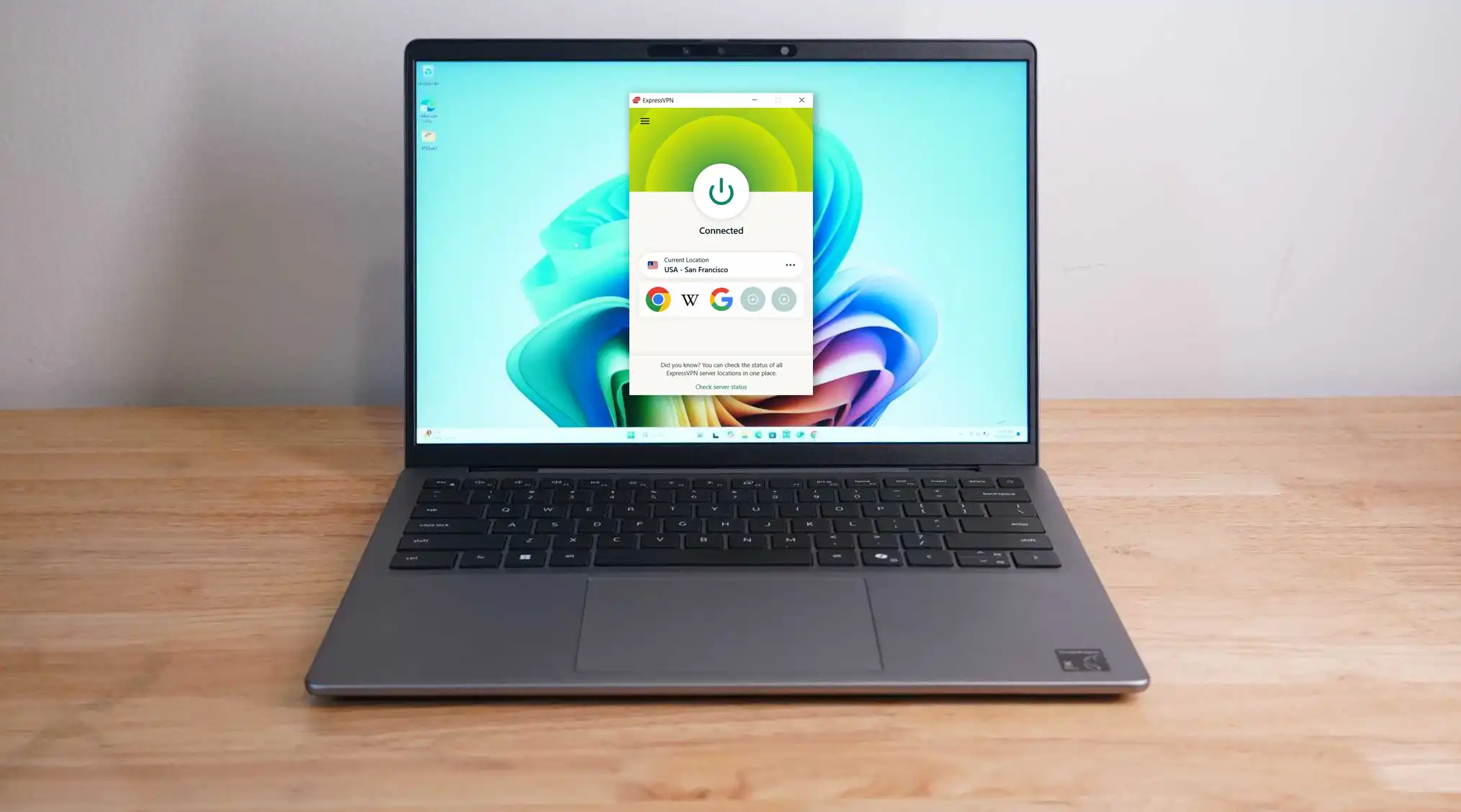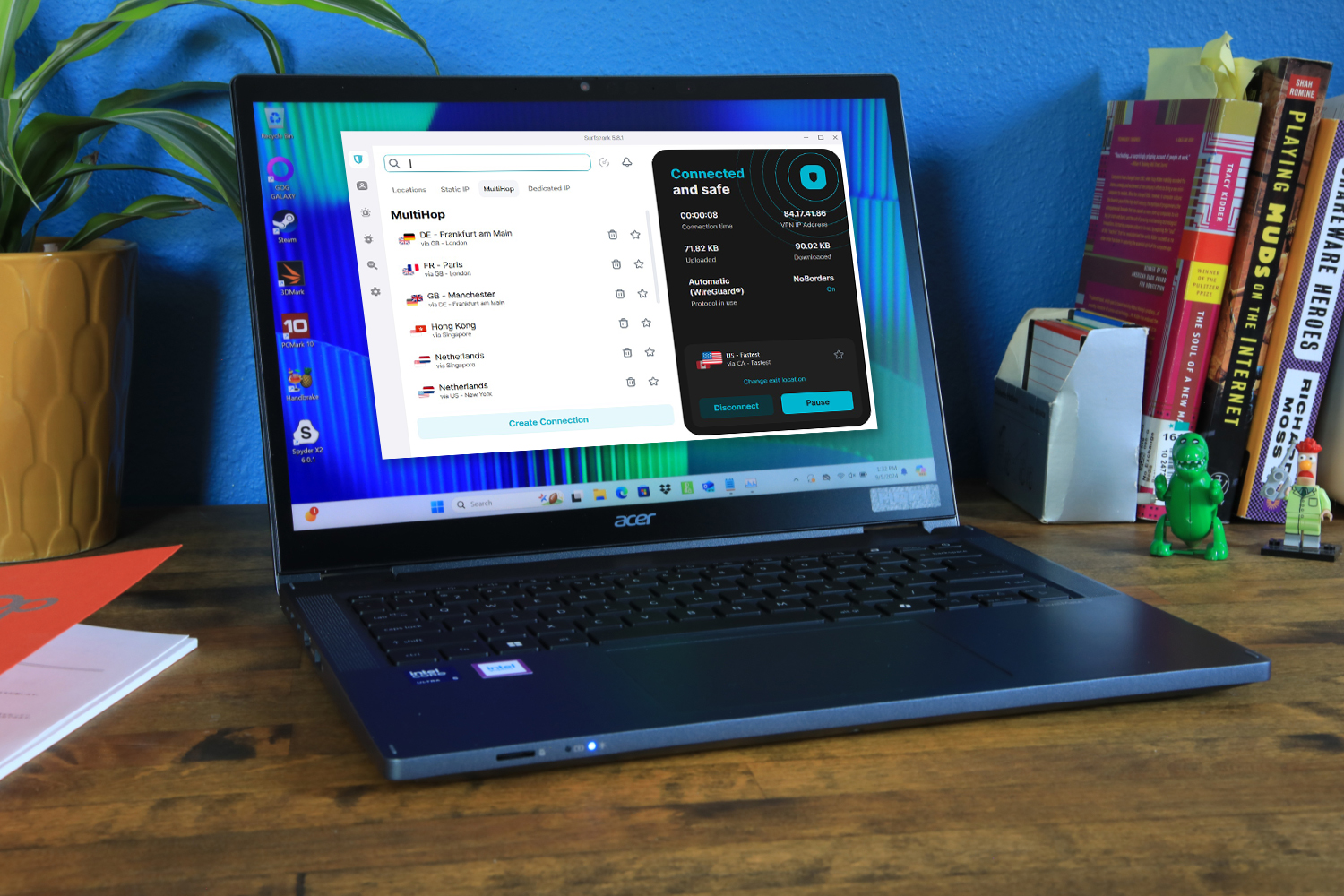VPNs, or virtual private networks, are versatile privacy tools that can enhance your online experience. They are very effective at helping you optimize your online privacy and security while also opening up location-restricted streaming content. But can they help improve your online gaming experience as well?
Using a VPN while gaming can enhance your security, open up new game catalogs, and even help reduce your ping in some instances. However, despite these pros, VPNs also come with some potential drawbacks for gaming such as slower speeds and the potential to face platform-wide bans. Read on to find out whether or not using a VPN while gaming is the right option for you.
Also, if you decide that you need a VPN for gaming, be sure to check out our best VPNs to find the service that fits your needs.
Pros of gaming with a VPN:
Enhanced security
In regards to security, there is one major benefit to using a VPN while gaming: hiding your home IP address to mitigate DDOS or doxxing attacks.
Anyone who spends any amount of time gaming online will understand that things can, and often do, get a bit toxic. Whether it’s an overly competitive gamer looking for an edge or a bad sport looking for revenge, they might go to extremes against opponents. This can include a DDOS (distributed denial-of-service) attack that slows down your connection or even a vengeful doxxing attack that exposes your personal data online.
A VPN can help protect you from both DDOS and doxxing by hiding your home IP address and routing your connection through an encrypted VPN server. This makes it much more difficult for toxic opponents to carry out targeted harassment against you.
Prevents some ISP throttling
Some ISPs, or Internet Service Providers, carry out secretive throttling on users who use a lot of data—especially during peak hours. This throttling can significantly slow down your connection speeds.
While online gaming doesn’t account for too much bandwidth, downloading games can take up huge amounts of data—it’s not uncommon for modern games to top over 100GB downloads nowadays. Slower speeds will not only make these downloads take a lot longer, but they’ll also have drastic negative effects on your online gaming experience.
VPNs are one of the best tools to combat ISP throttling. By encrypting your traffic and routing it through a VPN server, your ISP will no longer be able to see what you’re downloading and therefore won’t be able to penalize you with activity-based throttling.
It’s worth considering that while an ISP won’t be able to see your specific gaming or downloading activity, it’ll still be able to see the cumulative amount of data you use. Therefore, if your ISP imposes general data caps, then a VPN isn’t going to help in this situation.
Access to game content in other countries
This might be a bit more of a niche benefit with VPNs for gaming, but opening up location-restricted gaming content can be a huge plus for certain people.
Some online games employ geo-blocking technology to prevent users in specific locations from being able to access content in a different region. This practice is highly controversial and the EU has even gone so far as to have fined Valve and some game publishers in 2021 for this very thing. Unfortunately, it hasn’t stopped all geo-blocking activity by game developers.
The best way around geo-blocked content is to use a VPN to connect to a server in the region that you want to access content. This VPN connection will spoof your location and allow you to play games or connect to game servers that aren’t available where you are.
It’s worth noting though that many game servers or platforms utilize anti-VPN measures to detect and block VPN traffic. Also, you may be violating the terms of service by connecting with a VPN and can face consequences if caught—Steam, for example, may permanently ban your entire account from the platform.
Can potentially reduce your ping
A VPN allows you to pick and choose the location of your connection. This could provide the benefit of lowering your ping and latency.
Ping is the measure of how quickly your device sends and receives information from a game’s servers. This can have huge overall impacts because it allows you to respond faster to what’s happening in a game. Ping is especially important in competitive online games such as Valorant, Call of Duty, and League of Legends where quick responses are critical to success.
VPNs will benefit those who live outside of commonly served areas such as the U.S., Europe, and eastern Asia the most. Using a VPN to find a more direct route to the closest game servers or data centers may lead to lower ping and latency. Be careful, though, as the opposite is true as well: If you connect to a VPN server further away from the data center than your physical location it may significantly increase your ping and latency.
The key word here is “potentially.” Unless you know precisely where the nearest data center is, and whether a VPN server is close enough, you might end up on a wild goose chase trying to track down the best connection for only a minor payoff.
Cons of gaming with a VPN:
Slower connections speeds
Connecting to a VPN, no matter what your intended use, is likely going to slow down your connection speed. Sure, ping is going to play a more impactful role in your gaming experience than just raw connection speeds, but a slower internet connection means slower downloads. There is going to be a knock-on effect as well if you have multiple devices connected to the same network, eating away at bandwidth.
The best way around this is to use one of the fastest VPNs. These services are going to have less of a chance of noticeably slowing down your connection speeds. Still, all of this won’t matter if your home internet is slow already—it’s best to test and compare your home internet speeds and VPN connection speeds to know for sure.
May violate a game’s terms of service
This may not be a point that gamers consider when looking for a VPN for gaming. But it’s critical that you check the terms of service of any games or game apps you use to see if using a VPN is a violation.
These apps go further than simply blocking VPN connections, they actually make users agree to their restrictions before allowing access to the games you want to play.
The ultra-popular Steam app prohibits users from connecting to VPNs to disguise or spoof their location while gaming on its platform. The subscriber agreement states, “You agree that you will not use IP proxying or other methods to disguise the place of your residence, whether to circumvent geographical restrictions on game content, to order or purchase at pricing not applicable to your geography, or for any other purpose. If you do this, Valve may terminate your access to your Account.”
While it may be possible to get away with using a VPN to access geo-restricted content on these platforms, you should consider carefully if it’s worth receiving a potential ban as a result.
Adds another monthly expense
This one is pretty straightforward, but still worth considering. Gaming nowadays is not a cheap endeavor and adding another monthly expense on top of those expensive AAA games just might not be in your budget.
The very best VPNs cost money, and free VPNs simply aren’t going to cut it for gaming with all of the restrictions they put in place. For users who value privacy above all else, then a VPN has its perks. But not every gamer ultimately needs to use a VPN.
If you mostly play singleplayer games, your internet speeds and ping are already good, or you’re not concerned with potential doxxing, then using a VPN solely for gaming probably isn’t worth the money.
My top VPNs for gaming:
If you do decide that you want to use a VPN while gaming, then the next step is finding the right VPN to use. Thankfully, I test and review VPNs for a living and I’ve put in countless hours playing games with different VPN services. Here are my go-to picks:
Apart from being our top pick overall for best VPN, NordVPN is also the best at getting around region-restricted content. Users have access to an extensive server network spread across most of the countries of the world.
Plus, NordVPN has the fastest consistent speeds of any VPN I’ve ever tested, meaning you won’t have any issues with negative game impacts or downloading large game files.
A subscription to Nord even comes with access to a whole suite of extra security features such as malware and scam protection, ad-blocking, and a password manager.
ExpressVPN comes with most of the same benefits as NordVPN, but makes connecting even simpler. With just one click you’ll be connected to the fastest server available near you and with its wide platform support you can connect with just about any device—it even has full support for Steam Deck.
ExpressVPN is a bit more expensive, but comes with some great features such as a built-in password manager and advanced proprietary VPN protocols that help justify the cost.
Surfshark is all about value. While it doesn’t have quite as many features as NordVPN, and isn’t quite as simple to use as ExpressVPN, it beats both on price—especially if you opt for a long-term deal.
This isn’t to say Surfshark isn’t a capable VPN in its own right. In fact, it still includes more extra features than most other VPNs and has solid speeds and a large server network. All of this makes Surfshark a great value VPN if gaming is your priority.






